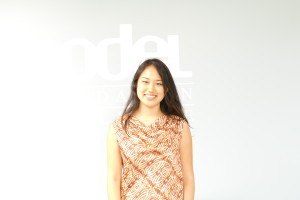Introducing Sophie Lin: Policy Fellow
I am very excited to join the policy team as a Policy Fellow at the Rodel Foundation this summer. I was born in France and grew up in Kentucky, Philadelphia, and Shanghai. I became interested in education after taking one class my junior year of college, which changed my view. In an economics course at SciencesPo in Paris, I researched the post-generational links of education attainment. I was shocked to find that an individual’s years of education strongly correlated to not only his own health, but also the health of the individual’s child when that child turned 40 (even when we controlled for income). Unexpectedly, the link between health and education convinced me that the enduring effects of education could either perpetuate the poverty cycle generation after generation or break it. For better or for worse, the number of years of education someone has frequently reappeared as the variable that has the strongest correlation with specific life outcomes. I realized that the most powerful lever to enact lasting change is by improving the education system.
As a result of this realization, I joined Teach For America in 2013 and just finished my first year as a middle school math teacher in Wilmington. In the classroom, I observed constraints that did not set my students up for long-term academic success. My students were one to two years behind in math content. Without having mastered foundational concepts, my students needed to learn newly implemented Common Core standards. There was much more that needed to be done to support my students. I told my students about my own education experience. I told them about how I flunked out of third grade at the French school, then moved to America over the summer and excelled in fourth grade at another school. What changed was not the rigor of the content nor my academic ability, but my access to resources. The teacher’s role is to serve as the bridge between students and academic achievement. As this year has taught me, it is not only the teacher, but so many other factors that are needed to build this bridge.
From a statistics standpoint, education as a socioeconomic indicator is messy. It is interrelated and affected by many different variables. From a policy standpoint, these interrelated factors are the very mechanisms that need to change in order to improve the quality of education. This summer at the Rodel Foundation, I am excited to have the opportunity to be on the other side of education, beyond the classroom. I am looking forward to being involved in impacting the classroom from the policy side.
